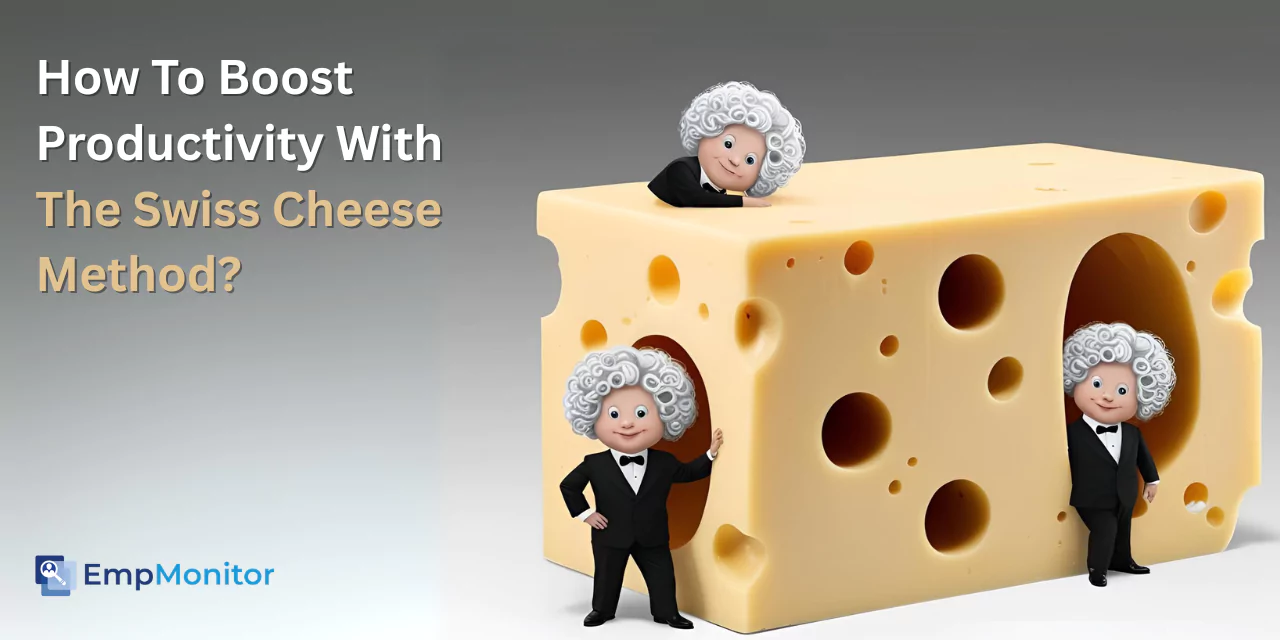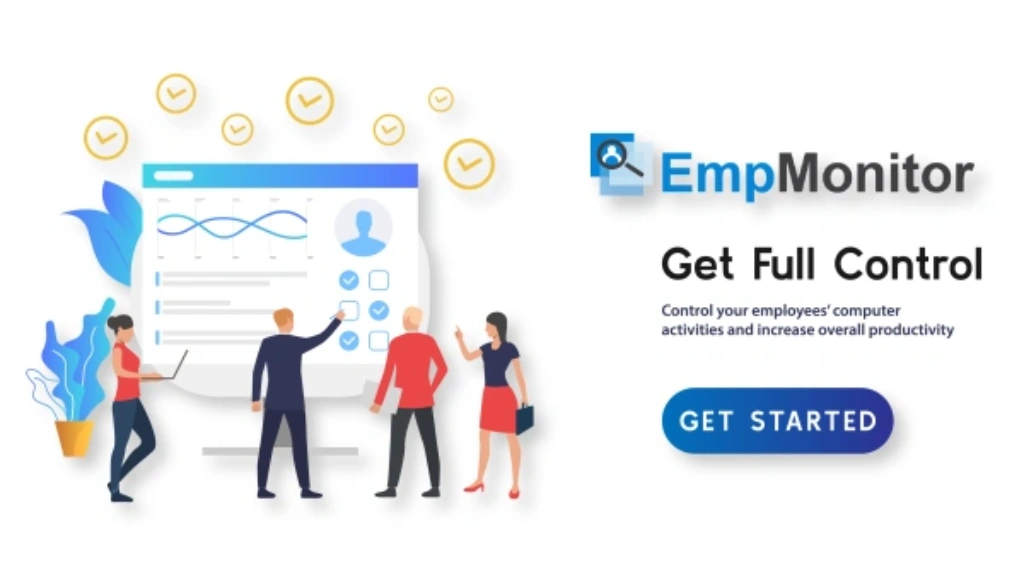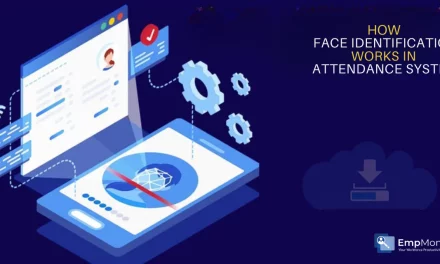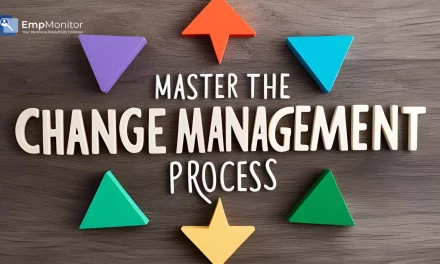That sinking feeling when you face a massive project is all too familiar. Your brain freezes. The task seems impossible. But what if there was a better way than forcing yourself through endless work sessions?
It is where the Swiss Cheese Method changes everything. It’s not about working harder or longer – it’s about working smarter. The concept is simple: instead of trying to tackle everything at once, you make progress by completing small, manageable pieces.
Think of it as if you were nibbling your way through a block of Swiss cheese. Each small bite gets you closer to finishing without that overwhelming pressure. You don’t need huge chunks of time – just consistent, focused effort on one small piece at a time.
The beauty of this approach lies in its simplicity. It breaks down big projects to remove their paralysis, build momentum through small wins, and, most importantly, help you make real progress without burning out.
We’ll walk through exactly how this method works in practice. You’ll learn why it’s so effective for today’s busy work life and discover practical ways to apply it immediately. There are no complicated systems – just straightforward strategies to finally take control of your workload.
This isn’t about doing more. It’s about working in a way that gets things done while keeping your sanity intact. Let’s transform how you approach your work, one small hole at a time.
In a hurry? Listen to the blog instead!
What Is Swiss Cheese Method?

Here’s how it works: Picture your project as a solid block of Swiss cheese. Instead of trying to devour the whole thing at once, you methodically poke holes in it. Each hole represents a small, completable task – maybe it’s drafting an email, researching one point, or sketching an outline.
What makes this method so powerful?
- It tricks your brain into starting – Small tasks feel manageable when big ones seem impossible.
- It creates momentum – Each completed task builds confidence and motivation.
- It fits real life – It works even with unpredictable schedules and interruptions.
The science behind it is simple yet profound. Every time you check off one of these small tasks, your brain releases dopamine – that feel-good chemical that makes you want to keep going. This creates a positive feedback loop where productivity feels rewarding.
Best of all, this method doesn’t require elaborate systems or perfect conditions. You can start applying it right now to whatever’s been lingering on your to-do list. Identifying those “holes” you can reasonably complete in short bursts – typically 15-30 minutes each.
Next, we’ll look at how to implement this in your daily work so you can start seeing results immediately.
Why The Swiss Cheese Method Perfectly Aligns With Modern Work?
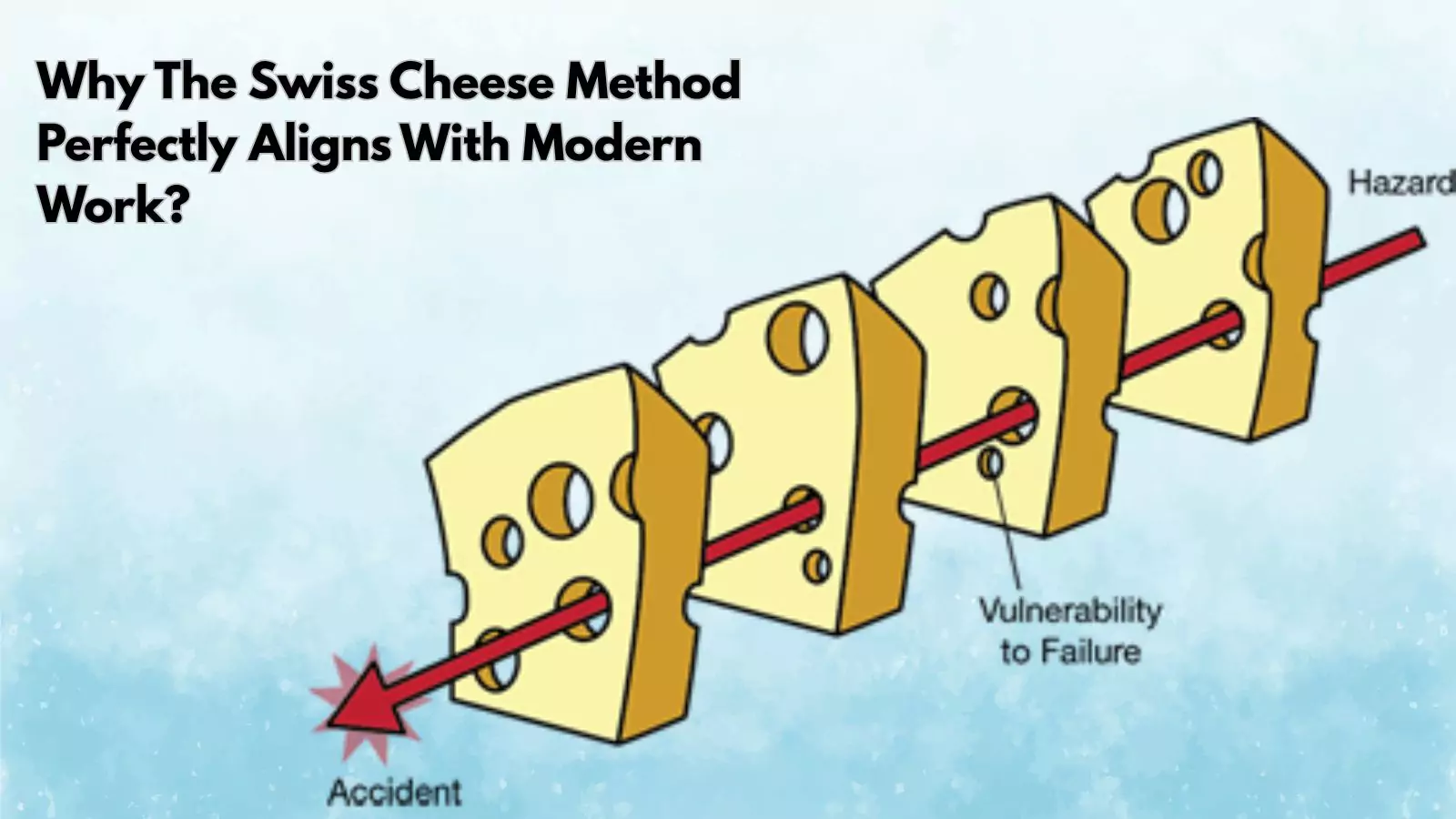
The Swiss Cheese Method thrives in chaotic work environments because it doesn’t demand perfect conditions. Unlike approaches requiring hours of deep work, this method works in the cracks of your schedule – those 15-30 minute windows between meetings or while waiting for a colleague’s response.
Three key reasons make the Swiss Cheese Method ideal for today’s workplace:
First, it eliminates the paralysis of starting. When facing a massive report or complex project, our brains often freeze. But breaking work into cheese-hole-sized pieces makes initiation effortless.
Second, it respects our fragmented attention. Rather than fighting distractions, the method works with them, turning stolen moments into productive wins.
Finally, it sustains energy. Marathon work sessions drain us, but completing small tasks provides regular dopamine boosts that maintain motivation throughout the day.
This adaptive approach explains why everyone from remote developers to hybrid managers is adopting the Swiss Cheese Method as their go-to productivity framework for our distraction-filled work era.
Step-by-Step: How To Use The Swiss Cheese Method

1. Identify Your “Big Cheese” – The Core Challenge
Begin by pinpointing the single most daunting task on your plate. It should be:
- A project that’s been lingering on your to-do list
- Work that feels too complex to start
- A responsibility that causes stress just thinking about it
Look for tasks with clear boundaries rather than vague objectives. For instance, “Complete the quarterly financial report” works better than “Get better at reports.”
2. Create Strategic “Holes” – Task Decomposition
Break your main task into 15-30 minute micro-tasks using these approaches:
For Creative Projects:
- Research phase: Identify three key sources
- Drafting stage: Outline main sections
- Revision process: Edit the introduction only
For Administrative Work:
- Email management: Respond to five priority messages
- Data tasks: Complete one spreadsheet section
- Organization: File one category of documents
For Complex Projects:
- Planning phase: List all required resources
- Execution stage: Complete one component
- Review process: Verify one section for accuracy
Focus on creating tasks that feel immediately actionable rather than abstract.
3. Start With the First Hole – Building Momentum
Begin with the simplest, most approachable subtask to overcome initial resistance:
- Choose the micro-task requiring the least mental energy
- Set a timer for a short, focused session (15-25 minutes)
- Eliminate distractions during this concentrated effort
For example, if writing a white paper, start by simply creating the document structure rather than tackling the hardest research section first.
4. Track Your Progress Visually
Implement a clear system to monitor advancement:
- Physical checklists with satisfying checkmarks
- Digital tools like Trello or Asana boards
- Spreadsheets with completion percentages
- Color-coding systems (red for pending, green for complete)
Visual indicators provide psychological reinforcement, encouraging continued progress.
5. Refine and Repeat – The Iterative Process
After completing several micro-tasks:
- Note which activities took more or less time than expected
- Identify steps that could be streamlined or delegated
- Recognize your most productive times of day
- Adjust future task sizes and sequencing accordingly
This continuous improvement approach helps customize the method to your working style.
Why This Method Works?
The Swiss Cheese Method succeeds because it:
- Lowers the barrier to starting difficult work
- Creates regular achievement milestones
- It fits into fragmented modern work schedules
- Reduces the intimidation factor of large projects
- Provides constant feedback through visible progress
By consistently applying this approach, you’ll develop a reliable system for tackling even the most challenging projects with confidence and reduced stress. The key lies in maintaining the discipline to break work down and the flexibility to adjust as you learn what works best for your workflow.
Real-Life Examples
A mid-sized marketing agency was struggling with persistent delays in client deliverables. Their creative team faced constant stress from looming deadlines, while managers spent excessive time chasing progress updates. The traditional approach of blocking off entire afternoons for “focus time” simply wasn’t working in their fast-paced environment.
That changed when they implemented the Swiss Cheese Method with a systematic approach:
-
Task Breakdown
-
- Large projects like campaign launches were divided into 30-minute “holes”
- Example: Instead of “Create social media plan,” tasks became:
- Draft Instagram content themes (30 min)
- Research 5 competitor posts (25 min)
- Outline the first week’s posting schedule (20 minutes)
-
Progress Tracking
-
- Used Trello to visualize all micro-tasks moving from “To-Do” to “Done”
- Color-coded cards showed which team members owned which holes
-
Performance Optimization
-
- Established daily check-ins to review completed holes
- Adjusted task sizes based on what worked best
- Celebrated small wins to maintain team motivation
The results were transformative:
- 34% faster project completion on average
- 10+ hours saved weekly from reduced context-switching
- Fewer last-minute rushes with more consistent progress
- Improved team morale through visible achievements
What truly elevated their implementation was adding workforce analytics to the process. By using EmpMonitor, a comprehensive workforce monitoring software, they gained:
- Objective productivity insights beyond self-reported progress
- Data-driven task estimation based on historical completion times
- Workload balance visibility across team members
- Automated progress tracking that saved managerial time
This powerful combination of the Swiss Cheese Method’s framework with EmpMonitor’s analytics turned their productivity challenges into consistent, measurable success. The software provided the missing piece – objective data to refine their approach while respecting team autonomy.
For teams looking to replicate these results, the formula is clear: start with the method’s task breakdown, maintain visual progress tracking, and enhance with workforce insights for continuous improvement. When implemented fully, this approach transforms productivity numbers & overall work quality, and team satisfaction.
EmpMonitor: The Swiss Cheese Method’s Perfect Partner

Key Features Of EmpMonitor For Productivity Management
Task-Level Time Tracking – EmpMonitor breaks down time spent on each activity, making it easier to measure progress on smaller subtasks in real time.
Smart Workload Allocation – As a robust project management software, it allows managers to assign tasks based on availability and performance metrics, ensuring every team member contributes meaningfully.
Activity Monitoring Tools – The workforce monitoring software feature tracks productivity trends, helping identify high-performing hours and potential distractions that may derail micro-task execution.
Comprehensive Performance Reports – With detailed analytics, leaders can review how small wins accumulate into larger project milestones, supporting the core principle of the Swiss Cheese Method.
User-friendly Dashboards – Visualize team productivity and track project phases at a glance, making it easier to celebrate progress and spot bottlenecks early.
By combining employee management software, project management software, and workforce monitoring software in one intuitive platform, EmpMonitor supports teams in executing the Swiss Cheese Method with precision. From individual task tracking to team-wide performance monitoring, it transforms how organizations approach productivity—one small step at a time.
Pro Tips For Managers: Making The Swiss Cheese Method Stick

Here’s how to help your team adopt and sustain this strategy effectively:
Balance Responsibilities Strategically
Not all workloads are created equal. That’s why it’s essential to rely on data from workforce monitoring software to see who’s overloaded and who might have room to take on more. Fair task distribution allows everyone to approach their work with energy and clarity, rather than being bogged down by stress or confusion about priorities.
Recognize And Celebrate Progress
The entire philosophy behind this method hinges on making small wins feel meaningful. When your team members complete a quick subtask, acknowledge it—no matter how minor it may seem. A brief shoutout during a stand-up meeting or a message in a team chat can provide motivation that carries over into the next task. Encouragement reinforces consistency.
Mix and Match Productivity Techniques
This approach is flexible and works well when combined with other time management tools. Encourage your team to experiment with methods like the Pomodoro Technique—using focused intervals of 25 minutes per subtask—or the Eisenhower Matrix to sort their task priorities. Mixing methods helps individuals discover what best suits their workflow, all while staying aligned with the core idea of incremental progress.
Give Structure And Visibility
Tools matter. Use project management software to give your team a clear view of what needs to be done and how their smaller tasks connect to bigger goals. Pairing this with employee management software helps managers keep an eye on performance trends without micromanaging. This structure keeps everyone on track and adds a layer of accountability that helps the method become second nature over time.
When the right leadership strategies meet a well-structured system, consistent productivity becomes much more achievable.
Read More
How To Pick Monitoring Software With 7 Best Project Management Features?
Workforce Management- It’s Not That Difficult as You Think, Quick Tips!
Conclusion
The Swiss Cheese Method proves that productivity isn’t about grand gestures of effort, It’s about consistent, intentional progress. By breaking intimidating projects into manageable “holes,” you transform overwhelm into action, procrastination into momentum, and stress into satisfaction.
This approach works because it respects how we work today in fragmented schedules, amid constant distractions, and with limited energy reserves. It doesn’t demand perfect conditions; it creates them, one small win at a time.
For teams and individuals alike, the real power comes when you pair this method with the right tools. EmpMonitor’s workforce insights help refine your approach, turning what begins as a simple productivity hack into a lasting system for excellence.
The next time you face a daunting task, remember: You don’t need to eat the whole block of cheese at once. Start with one hole. Then another. Before you know it, you’ll see, with pride and perhaps some surprise, that what once seemed impossible is complete.
FAQ Section
1. Can the Swiss Cheese Method work for creative tasks like writing or design?
Absolutely! The Swiss cheese method of time management is especially effective for creative work. Instead of waiting for inspiration, break projects into small steps—like sketching one concept, writing a single paragraph, or editing one section. This keeps creativity flowing without the pressure of perfection.
2. How do I handle tasks that can’t be easily broken into small pieces?
Even complex tasks have entry points. Focus on setup steps (research, outlining, gathering materials) or divide work by time (spend 20 minutes on a small part of the task). The key is identifying any actionable piece to build momentum.
3. What if I finish a “hole” faster or slower than expected?
Adjust as you go! The method is flexible—shrink or expand future tasks based on what you learn. The goal is progress, not rigid time blocks.
4. Is this method effective for team projects with multiple collaborators?
Yes! Assign specific “holes” to team members based on skills or workload. Regular check-ins ensure alignment, and tools like shared task boards keep everyone on track.
5. Can I combine the Swiss Cheese Method with other productivity techniques?
Definitely. Pair it with the Pomodoro Technique for timed focus sessions or the Eisenhower Matrix to prioritize which “holes” to tackle first. The method adapts to your workflow.
Have more questions? The Swiss cheese method of time management evolves with practice—start small and refine as you go!

